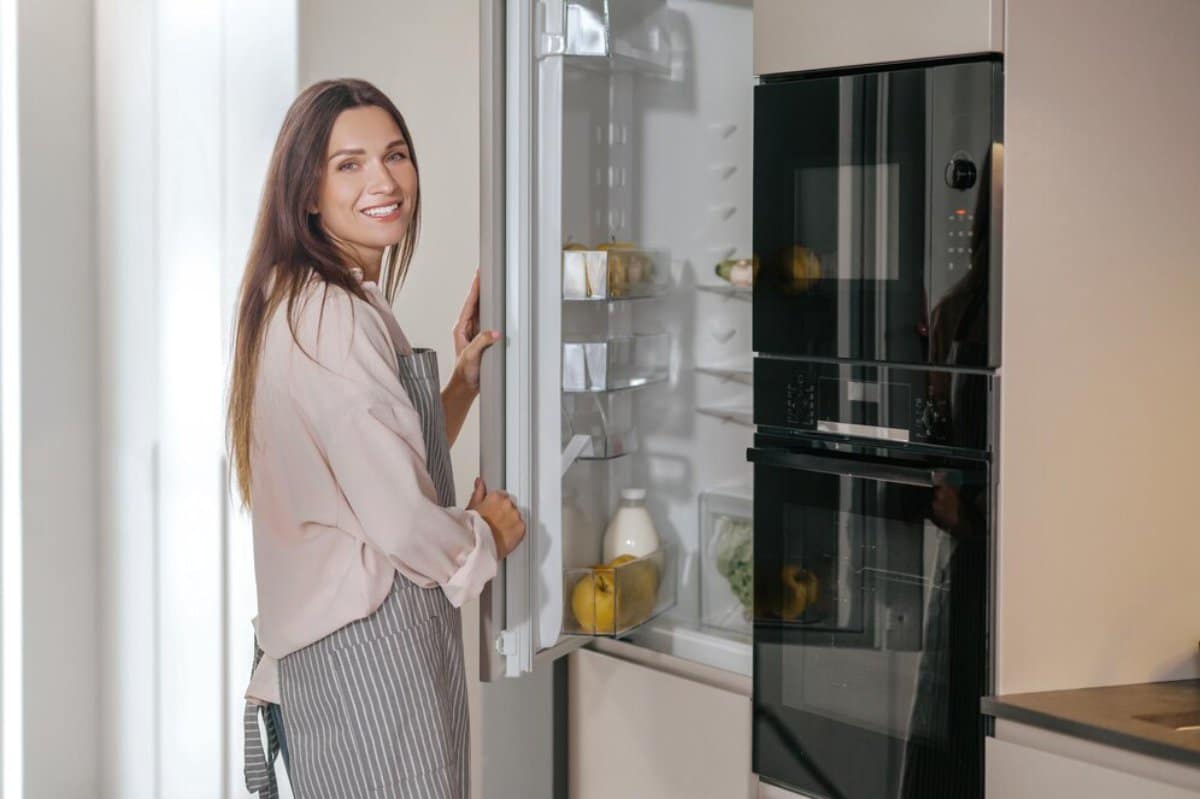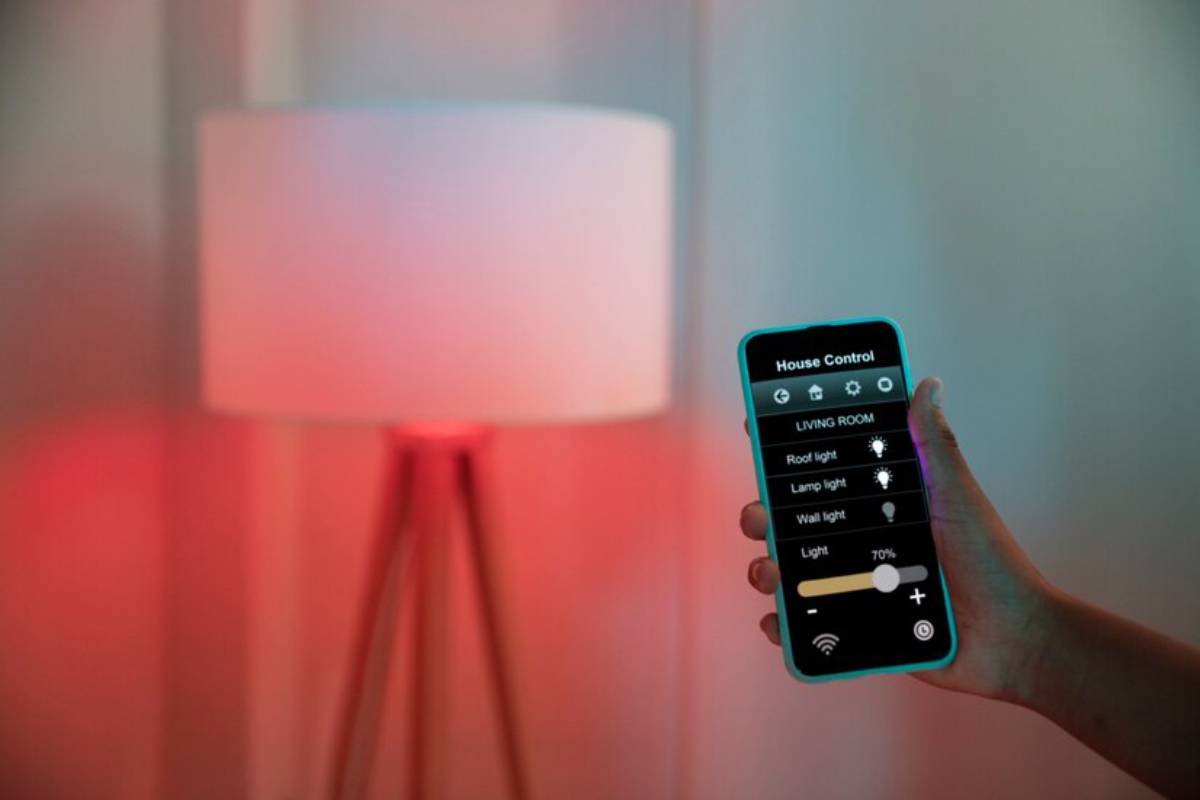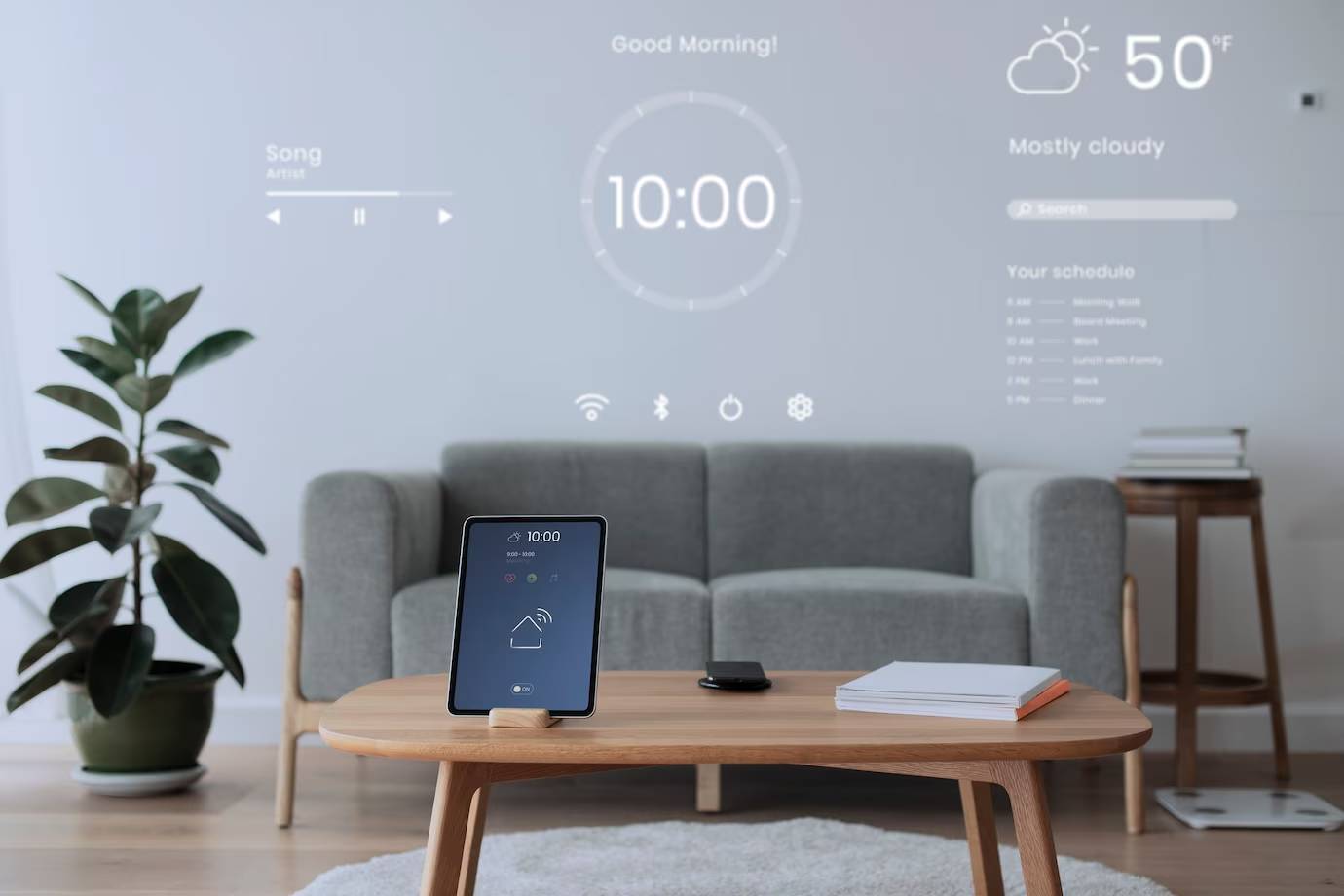
Smart Refrigerators: Features That Go Beyond Cooling
Refrigerators are the unsung heroes of the kitchen. They keep our food fresh, chill our drinks, and provide a soft glow for midnight snackers. In the age of the Internet of Things (IoT), even the simple fridge has changed with digital technology. Today’s smart fridges do more than just control temperature. They are now key hubs in the connected kitchen.
The latest IoT refrigerators come with touchscreens, inventory-tracking systems, and app-based management. They are changing how we store food, shop, and communicate with family. Smart fridge features aren’t just for gadget fans. They help make daily tasks easier, cut down on waste, and boost energy efficiency.
In this article, we’ll look at what makes a refrigerator “smart.” We’ll check out the latest technologies and see if these high-tech features are worth the cost for most homes.
What Is a Smart Refrigerator?
A smart fridge is a Wi-Fi-enabled appliance designed to integrate with your home network and smart devices. These refrigerators are equipped with sensors, internal cameras, touchscreen interfaces, and voice-assistant compatibility to help you manage everything from temperature settings to grocery lists.
Key Capabilities Include:
- Real-time inventory tracking
- Expiry date notifications
- Recipe suggestions based on contents
- App-controlled temperature zones
- Energy usage monitoring
- Voice-command operation
- Integration with other connected kitchen appliances
In essence, these features extend the fridge’s role beyond food storage into the realm of automation, convenience, and sustainability.

Smart Fridge Features That Stand Out
Let’s break down the core features of today’s smartest refrigerators and how they can benefit everyday households.
1. Internal Cameras for Inventory Viewing
Functionality:
- Cameras inside the fridge allow you to view its contents remotely via smartphone.
- Useful while shopping, helping avoid duplicate purchases or forgotten ingredients.
Benefit:
- Reduces food waste
- Saves money on unnecessary items
- Great for managing large households
IoT Refrigerator Insight: Some models use AI to identify items and suggest recipes based on what you have.
2. Touchscreen Interfaces and Family Hubs
What It Does:
- Built-in displays function as digital whiteboards, calendars, or entertainment centres.
- Users can leave notes, stream music, check weather updates, or browse the web.
Why It’s Useful:
- Acts as a central command station for busy families
- Can sync with other smart devices or your digital calendar
Example: Samsung’s Family Hub range has become a benchmark for this type of feature-rich smart fridge.
3. Voice Assistant Integration
Feature:
- Compatible with Amazon Alexa, Google Assistant, or proprietary voice systems.
Use Cases:
- Adjust temperature using voice commands
- Ask for recipes
- Add items to a shopping list while cooking
Smart Fridge Features Meet Smart Home Routines: Voice control adds hands-free convenience to multitasking in the kitchen.
4. Customisable Cooling Zones
Function:
- Assign specific drawers or compartments different temperature or humidity settings.
- Perfect for separating meats, vegetables, beverages, or dairy.
Advantages:
- Keeps food fresher for longer
- Reduces cross-contamination
- Allows for personalisation based on lifestyle or dietary needs
Connected Kitchen Appliance Bonus: Some models offer “FlexZone” drawers that convert between fridge and freezer with a tap.

5. Grocery Management and Shopping List Sync
How It Works:
- Use voice commands or a touchscreen to add items as you run out.
- Lists sync to your phone or integrate with online grocery platforms.
Why It Matters:
- Prevents forgotten items
- Supports meal planning
- Can be shared with household members for coordinated shopping
IoT Refrigerator Edge: Some models now integrate with smart scales or barcode scanners for precise tracking.
6. Energy Efficiency and Usage Reports
Technology:
- Smart fridges track energy consumption in real-time and alert you to anomalies.
Eco Benefits:
- Identify energy spikes
- Improve home efficiency
- Reduce utility bills
High-Tech Home Sustainability: Connected energy data can help make your entire smart home security system and automation setup more efficient.
7. Automatic Alerts and Diagnostics
Alerts Include:
- Left-door open warnings
- Water filter replacement reminders
- Temperature anomalies
- Power loss notifications
Smart Maintenance:
- Self-diagnosis tools can pinpoint problems before a technician visit
- Minimises downtime and costly repairs
Peace of Mind: Especially helpful when you’re away from home.
Integration with Broader Smart Home Ecosystems
A smart refrigerator doesn’t operate in isolation—it often acts as a hub for a broader network of connected kitchen appliances and smart home systems.
Examples of Seamless Integration:
- Smart lighting: Lights dim automatically when the fridge door opens at night
- Home assistants: Alexa routines triggered when you’re low on milk
- Energy platforms: Linked to smart energy meters for unified consumption tracking
- Security systems: Alert you to suspicious access when you’re away
When linked effectively, your smart fridge features become part of a harmonised home environment—streamlining routines and boosting overall efficiency.
Potential Drawbacks and Considerations
While the appeal of a smart fridge is undeniable, there are factors worth weighing before investing.
1. Cost
High-end smart refrigerators can range from £1,500 to £5,000+.
Solution: Some manufacturers offer more affordable “smart-lite” versions with select features, like app control or internal cameras.
2. Software Longevity
As with any tech product, updates are crucial. Older models may lose support or become incompatible with newer apps.
Tip: Choose reputable brands with strong update histories and app ecosystems.
3. Security and Privacy
Internet-connected devices can pose cyber vulnerabilities.
Mitigation:
- Use strong passwords and secure Wi-Fi
- Update firmware regularly
- Consider network segmentation for IoT devices
4. Learning Curve
Some users may find the digital interfaces and voice features unintuitive at first.
Workaround: Most smart fridges retain manual controls for traditional use while offering digital tools as a convenience, not a necessity.
Who Benefits Most from a Smart Refrigerator?
Smart fridges aren’t just novelties for tech enthusiasts. They can be genuinely transformative for:
- Busy families juggling school, meals, and schedules
- Meal preppers managing ingredients and expiration dates
- Frequent travellers who want remote monitoring
- Energy-conscious households tracking consumption closely
- Elderly users who benefit from medication reminders or door alerts
If you value integration, automation, and proactive kitchen management, a smart refrigerator might be the upgrade that changes your everyday routine.
Are They Worth the Investment?
The answer depends on your lifestyle, budget, and interest in technology. If your primary goal is to simply keep food cold, a traditional fridge will suffice. But if you want a more interactive, connected, and efficient kitchen experience, the latest IoT refrigerator models offer compelling value.
Worth It If:
- You already use other smart home devices
- You enjoy hands-free automation
- You prioritise food waste reduction and energy efficiency
Possibly Not If:
- You rarely use digital interfaces
- You’re tech-averse or prefer low-maintenance appliances
- You’re on a tight budget
Cooling with Intelligence
Smart refrigerators are emblematic of how everyday appliances are evolving in the era of the connected home. What used to be a simple cold box is now a smart assistant. It manages food, syncs with your life, and helps protect the planet.
Smart fridges come with features like internal cameras and flexible temperature zones. They also connect with other home systems. These kitchen gadgets show a future where function meets style and intelligence.
Act now: If you’re creating a modern kitchen or improving your smart home, consider a next-gen IoT refrigerator. It can help keep your life—and your leftovers—cool, calm, and connected.


